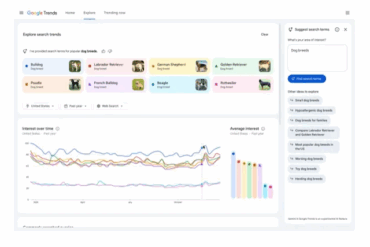By Imara Jones
Brands like Target and Bud Light are facing backlash from anti-LGBTQ critics. In 2023, it’s astounding that they don’t have better plans in place to deal with it.
It’s June, which means it is Pride season, but Pride has unfolded in a very different way this year, at least as far as corporate marketers are concerned. A number of big brands—most recently Bud Light and Target but also M&Ms and Disney—have been the focus of criticism and even boycotts for their support of LGBTQ communities. They’ve also faced criticism for seeming to buckle a little too easily to the charge that they are “woke.”
You can bet nearly every corporate marketing and communications team that has signed up for a Pride campaign is nervously watching for backlash, one that often pops up on fringe social media accounts and is then amplified by Fox News and other media into a much bigger-seeming controversy. Once targeted, these large companies are scrambling—and responding poorly.
And maybe we shouldn’t be surprised. When it comes to Pride and to LGBTQ support in general, companies for a really long time have essentially been free riders. They’ve said and done a lot of things that are performative—and they’ve gotten away with it.
This is true for celebrations beyond Pride, of course, and increasingly there has been criticism from a variety of groups in this country, which argue that the business community has a habit of virtue signalling, saying stuff like “Oh my God, it’s Juneteenth. Let’s put up a picture of a Black family in the front of our bank.” As the Pride backlash unfolds, what we’re seeing is who is performative and who is not.
And frankly, we’re also seeing who is competent and who is not. For companies whose job it is to plan for a bunch of contingencies, very few seem to have noticed what’s happening in our politics and in our culture, and how it might affect them, and their customers and their employees and shareholders.
The impetus for Pride marketing—the reason it has become so ubiquitous—is that brands know that over the next five years, their continued relevance is going to be decided by the number of Gen Z consumers who are driving real purchasing power in the marketplace. That’s just a fact. That’s why they’re doing it. Bud Light has always been part of a conservative company. They’re not reaching out to Dylan Mulvaney as part of an influencer marketing campaign because it’s a corporate value of Bud Light to spotlight transgender people. They understand that Gen Z consumers have diverse sets of friends, they come from diverse communities, and that for brands to be relevant for them, members of Gen Z have to be able to see themselves in that brand. And if they don’t, those increasingly valuable consumers are going to say “That brand isn’t for me” and they’re going to move on.
So, all these brands know that they have to do something. But what they don’t seem to know is that you have to be really smart about how you’re going to navigate this terrain—and they clearly haven’t been smart.
Even for brands that have made a strategic choice to be a part of LGBTQ community, there still seems to be a lack of conviction, or a genuine understanding of the stakes. Take Target. We know the company deliberately locates stores in higher-income level areas. We know they deliberately carry certain products that are more expensive. We know their advertising campaigns have been campy for at least the past 15 years. We know the company has done these things in order to attract a more urban and educated audience. And they know that their customers—even if they themselves do not identify as LGBTQ—want to spend money with companies that are progressive on issues including LGBTQ rights. This notion has been embedded in the Target brand for a very long time.
Yet the moment they got a little pressure, they folded.
When the Target backlash happened, I kept thinking why don’t they just go out and say the following: “Target is a company that sells to everybody. A part of selling to everybody includes customers who are LGBTQ, and that’s what we do as a company. And everyone who comes through our doors should know that’s what our values are.”
That’s it. That’s the statement. Let’s move on. But they couldn’t even bring themselves to say that.
And to me, the truly shocking thing here is not necessarily that brands like Bud Light and Target have been attacked. The shocking thing is that their senior leadership clearly has not known what to do when they’re attacked, despite the fact that they have lots of people who get paid an inordinate amount of money to be able to try to figure these things out. That to me is clearly the real, underlying issue, because you see it across the board. It’s a failure of planning and strategy and leadership and business intelligence—and it’s astounding.
Companies operating in the middle of an intense political environment, such as the one we’ve been living in for at least the last half-dozen years, quite obviously should have plans on the shelf for how to best respond if their support of the LGBTQ community—or for another community or cause—makes them a target.
In an age when we all know that stories can go viral in the blink of an eye—and we all know these episodes can be harmful to a company’s reputation—major corporations quite obviously should have plans in place for how they’re going to respond, plans that go beyond quickly calling up a crisis PR firm to try to bail them out. That they do not suggests to me that a lot of these companies, in terms of their leadership and their focus, are not as good as we think they are, because there’s no way that you should not have in place a plan that says, “If we’re suddenly being criticized by Tucker Carlson, this is what we do.”
We saw this during the pandemic as well, for what it’s worth. No one seems to have thought, “If supply chain X goes down, do we have an option Y in place as a backup?”
Too many big brands still have a 1990s approach to cultural marketing, which is very ad hoc and maybe well meaning but ultimately superficial. They come up with their Pride plans at the last minute, and the same is true of their Black History Month plans and their AAPI month plans and their International Women’s Day comms, too.
If you are a marketer and you find yourself calling up someone four or five weeks before an event to say, “Can you speak to our company for Pride?” then that says to me that your Pride marketing is not actually a considered part of the lifeblood of your company. And so with big brands bungling their responses to political backlash, one of the things that’s being revealed is the continued lack of engagement with a variety of communities in America who have never enjoyed from corporate leaders the same attention and focus and care as other communities.
And there is a larger issue with all of this: Let’s not forget that companies have been given an inordinate amount of support in the United States through the government over the past 30 years, from Supreme Court decisions that benefit big business to tax policy to the bank and auto bailouts that every taxpayer has helped to fund. Corporate power is a creation of government power, with the government deciding what corporations can and cannot do. Isn’t it strange that companies have been able to obtain all that power in recent years, and yet when it comes to standing up for very basic values like tolerance and mutual respect, suddenly there’s no responsibility and no accountability? It’s something for all of us to think about.
Feature Image Credit: rawpixel.com, Raphael Renter/Unsplash]
By Imara Jones
Imara Jones is the founder and CEO of TransLash Media.





